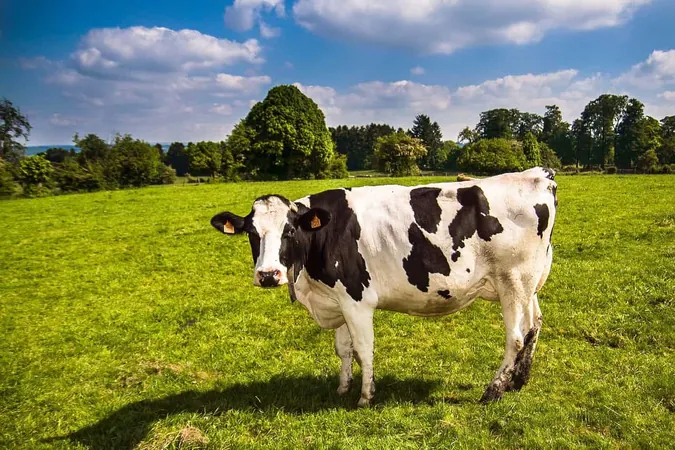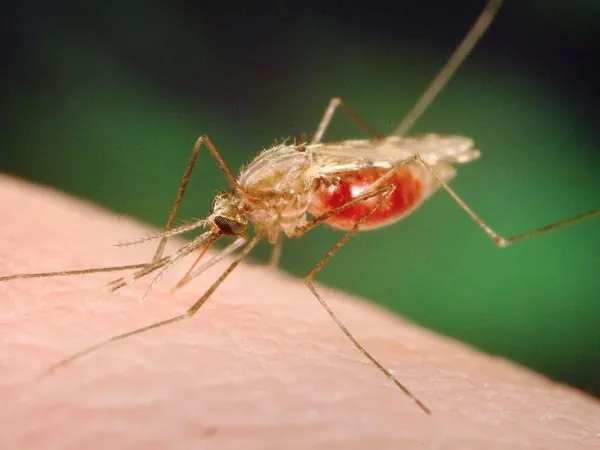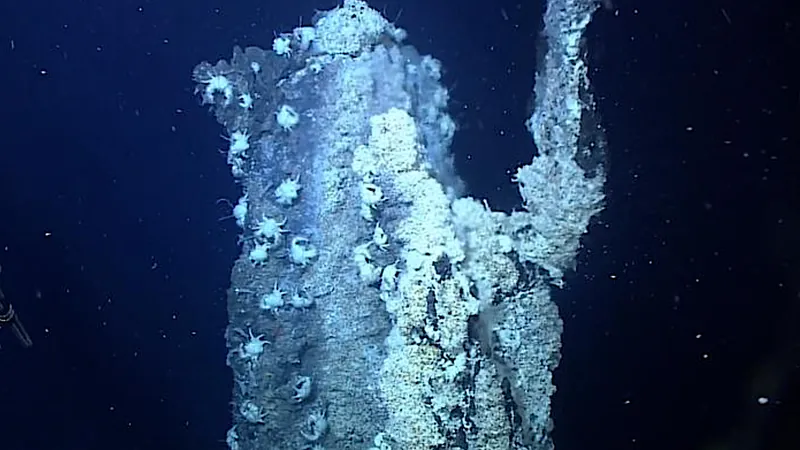
Shocking Truth: Deforestation for Livestock Farming is Devastating Our Planet!
2025-07-28
Author: Michael
New Research Unveils the Alarming Impact of Deforestation
A groundbreaking study from the University of Cambridge has revealed a staggering fact: the destruction of forests for livestock farming is wreaking havoc on biodiversity far beyond what we previously understood. The environmental toll is a jaw-dropping 60% higher than earlier local investigations indicated!
Biodiversity at Risk: A Closer Look
Colombia, known for its breathtaking biodiversity, is experiencing catastrophic habitat loss as forests are cleared for agriculture—primarily livestock farming. With a third of its land covered in vital rainforests, Colombia is home to countless unique species, many found nowhere else on Earth. Researchers highlight that the extent of biodiversity loss is significantly underestimated, as local studies fail to capture the larger regional implications.
The Scale Matters: Local Studies Fall Short
Traditionally, biodiversity loss has been examined at a small scale, skewing our understanding of its true impact. A recent sweeping study analyzed 971 bird species across 13 biogeographical regions, concluding that biodiversity decreases on a national scale are about 60% worse than localized studies suggest. The complexity of ecosystems and interconnected species are often overlooked in such limited research.
Homogenization: A Grim Reality for Ecosystems
Transforming land for agriculture strips away habitat complexity, diminishes microclimatic variety, and reduces ecological niches. This process leads to biotic homogenization—where ecosystems become alarmingly similar—and diminishes overall biodiversity, making ecosystems more susceptible to disruptions. Areas with high beta diversity suffer disproportionately, reminding us that tailored protection strategies are imperative.
Are Biodiversity Offsetting Methods Enough?
Globally, biodiversity offsetting—where damage in one location is supposedly balanced by protecting another—often misrepresents reality. The datasets driving these offsets tend to provide an overly optimistic picture, primarily relying on local studies that inadequately consider broader ecosystem complexities. We desperately need improved monitoring systems to ensure effective policy and conservation.
Calling All Policymakers and Consumers!
The implications are clear: policymakers must rethink strategies that acknowledge the spatial reality of biodiversity loss and work to protect pristine ecosystems. Consumers hold power, too! By choosing sustainably produced products and supporting eco-conscious businesses, we can all play a vital role in conservation. Awareness of the true ecological costs of our choices is essential.
Eyes on the Future: A Multidisciplinary Approach Needed
The battle for biodiversity preservation demands collaboration among science, policy, and public advocacy. Future research must genuinely account for spatial dimensions and ecosystem complexity. By grasping the ecological ramifications of land use, we can more effectively safeguard our natural world and ensure a sustainable tomorrow. This study also honors the courageous Colombian environmental leaders lost since its inception in 2012, underscoring the urgency of immediate action.









 Brasil (PT)
Brasil (PT)
 Canada (EN)
Canada (EN)
 Chile (ES)
Chile (ES)
 Česko (CS)
Česko (CS)
 대한민국 (KO)
대한민국 (KO)
 España (ES)
España (ES)
 France (FR)
France (FR)
 Hong Kong (EN)
Hong Kong (EN)
 Italia (IT)
Italia (IT)
 日本 (JA)
日本 (JA)
 Magyarország (HU)
Magyarország (HU)
 Norge (NO)
Norge (NO)
 Polska (PL)
Polska (PL)
 Schweiz (DE)
Schweiz (DE)
 Singapore (EN)
Singapore (EN)
 Sverige (SV)
Sverige (SV)
 Suomi (FI)
Suomi (FI)
 Türkiye (TR)
Türkiye (TR)
 الإمارات العربية المتحدة (AR)
الإمارات العربية المتحدة (AR)